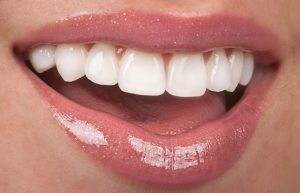- Dental Implants -

Dental implants provide the foundations for missing and non-salvageable natural teeth. The roots of missing teeth are replaced with a titanium fixture. Dr. Seehra places dental implant(s) to secure crowns, bridges and fixed or removable dentures.
Dental implants offer the advantage of replacing missing teeth without the removal of enamel on adjacent natural teeth which is required in the preparation of bridge abutments. Dental implants also act to preserve your natural jaw bone since it is well documented that bone loss occurs over time when teeth are missing.
Once the implant has been placed in the jaws, the implant will need three to six months to integrate (bind) with the bone, depending on the quantity and quality of the remaining bone. If a bone or gum graft is necessary, the procedure can take longer than 6 months.
After this initial phase of healing is completed, the implant can be used to support a variety of treatment options available to replace the missing teeth.
Benefits of Dental Implants
-
Replace one or more teeth without affecting surrounding teeth.
·
Elimination of a removable denture or partial denture with a fixed option,
·
Provide support for a denture, making it more secure and comfortable,
·
Reduce the rate of progressive bone loss from missing teet
Frequently asked questions about dental implants
- What exactly is a dental implant?
The best way to describe a dental implant is to look at a real tooth. A real tooth consists of a crown and a root. The part of the tooth that you see and eat with is the crown. The root, which you cannot see, is beneath the crown. It anchors the crown through the gum tissue to the jawbone. When you lose a tooth, you lose both the root and the crown. To replace a tooth the root must first be replaced. Essentially, a dental implant is a new titanium root.
2. How long do dental implants last?
Research has shown that dental implants may last a lifetime. Implants can fail if the quality of the bone is poor or if they are not cleaned and maintained. Parafunctional habits such as clenching / grinding, certain medications, dry mouth (xerostomia), illnesses or medical conditions (such as diabetes and osteoporosis) and recreational substances can affect the longevity of teeth and implants. You will have the opportunity to discuss these and other questions with Dr. Seehra during your consultation appointment.
3. Are antibiotics necessary after dental implant surgery?
Prophylactic antibiotic use is not mandatory for every implant surgery procedure. Antibiotics are however useful in preventing postoperative infections in some cases after implant placement and may be required if an active infection is present or if your reported health status requires antibiotic use.
4. Which is better dentures or dental implants?
Two or more dental implants will provide better retention and security to your removable complete dentures. Individual treatment options will be discussed during your consultation appointment.
5. Who is a candidate for dental implants?
Most patients can receive dental implants with modification of the implant protocols to accommodate the status of your general health. There are risks of poor implant integration for patients that use tobacco or have metabolic disorders such as diabetes, osteoporosis or other illnesses that affect bone and gum health.
6. Where can I get more information online about dental implants?
The best manner to receive information that is tailored to your particular circumstances involves having a dental implant consultation. Dr. Seehra will assess your health status, your x-rays and your dental status to provide you a personalized treatment plan with alternative options.
